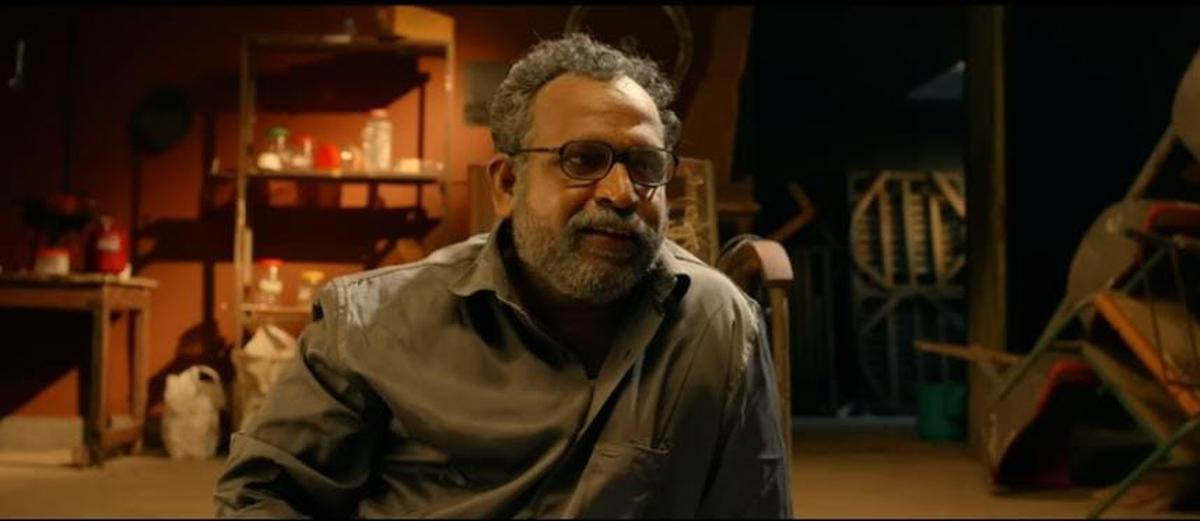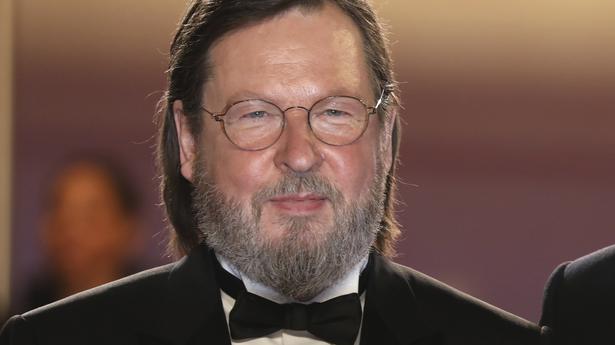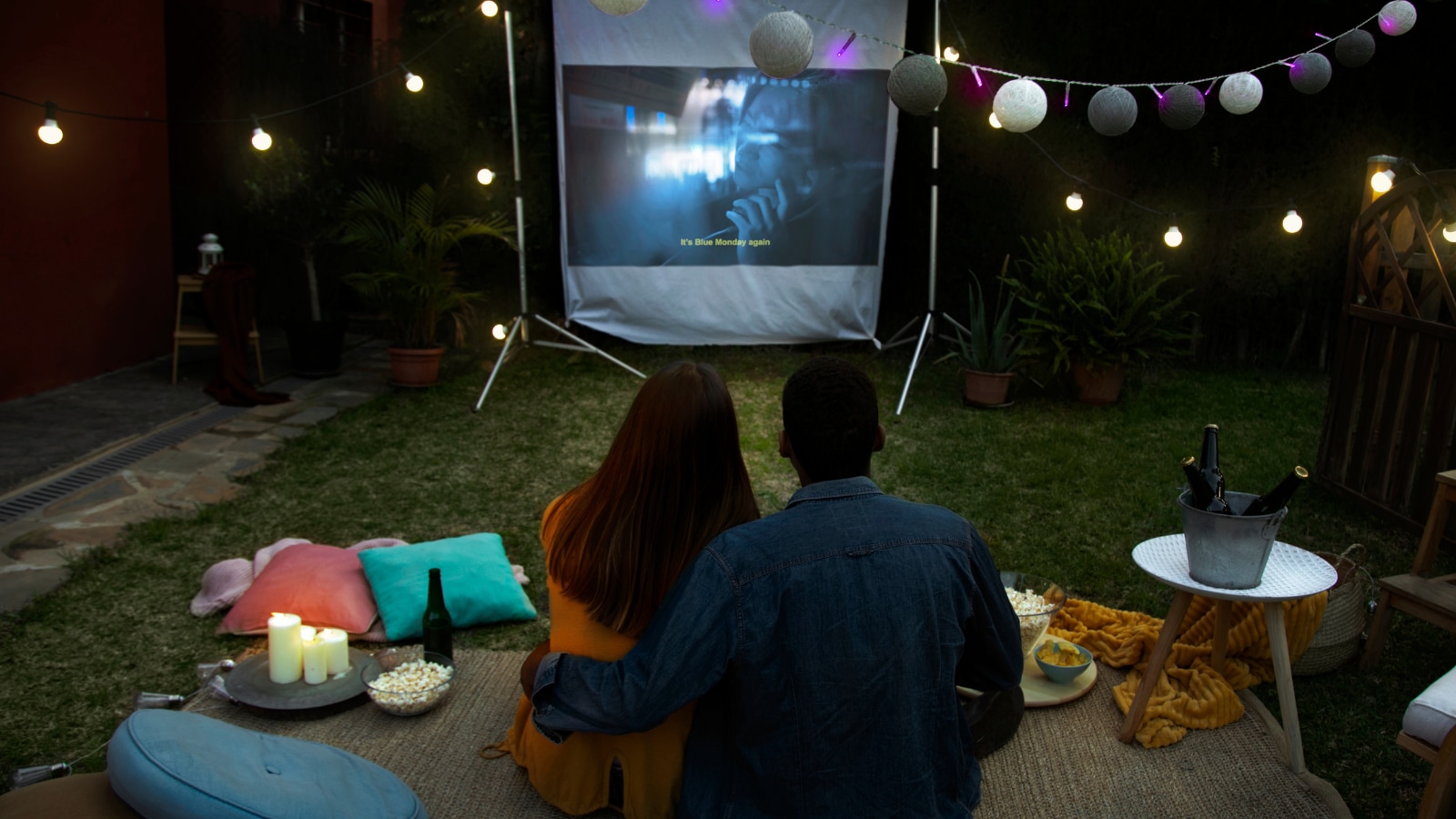Samantha Ruth Prabhu
| Photo Credit: Special Arrangement
The team of the Telugu film Shaakuntalam, directed by Gunasekhar and produced by Neelima Guna, held a premiere recently in Hyderabad. In this interview with The Hindu days prior to the film’s nationwide release on April 14, the film’s lead actor Samantha Ruth Prabhu makes her happiness evident when she says, “It was an experience to witness the animals and the world of Shakuntala in 3D. I am hoping that families with children will come to the theatres. We watch Marvel and other international films in 3D, so why not a story that is steeped in Indian culture?”
Shaakuntalamis the third film in recent years that has Samantha in the title role, after Oh! Baby and Yashoda. On the sets, she says her process remains the same irrespective of the length of her role because “I give my heart and soul to every character I take up. But it is a different ball game when it comes to box office expectations. There is so much stress and pressure to deliver.”
Her pre-release nervousness has not dipped in the 13 years of her career. “I ask myself if this stress will ever go away,” she says and points to the bright side, “We (female actors) have come a long way to find our small place in this industry. Sometimes I think this pressure is worth it.”
The game has gotten tougher with social media judgment even before the release of a film. “I did not realise how the negativity has been growing until a film is up for release. I choose not to respond to negativity but at times it makes me sad.”
Divine intervention
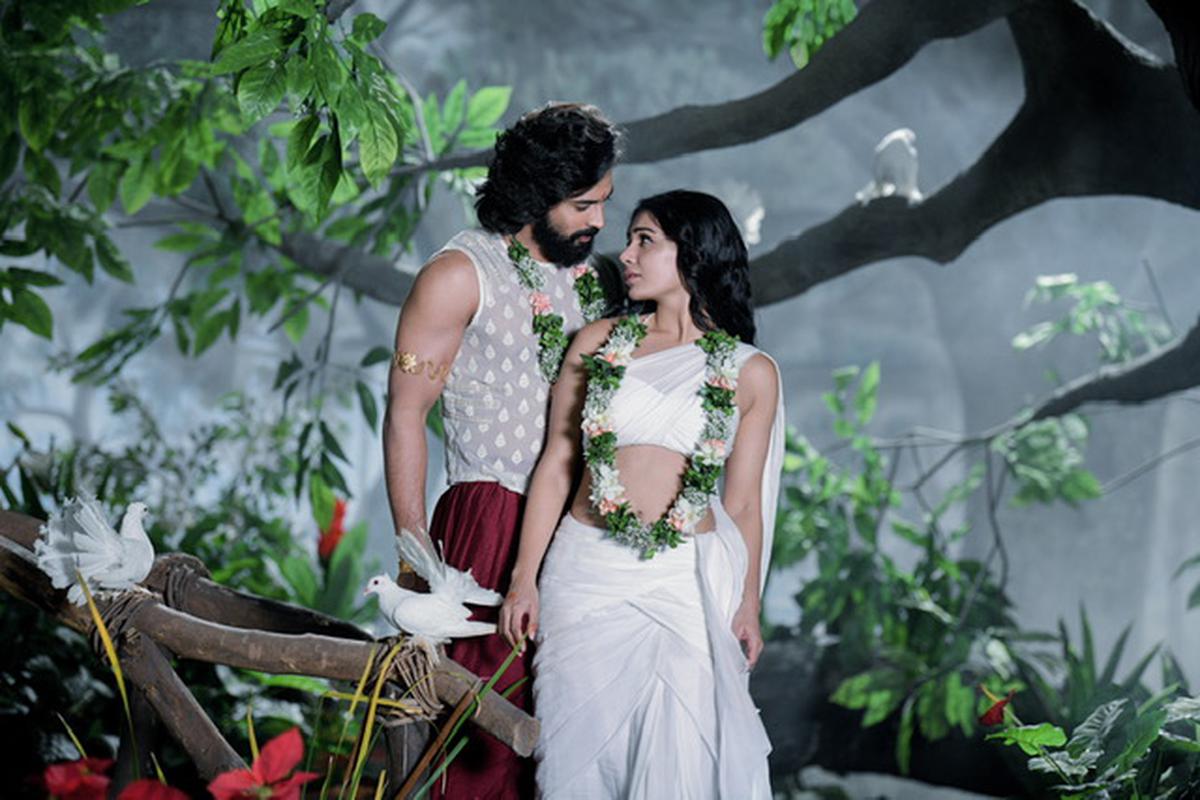
Dev Mohan as Dushyanth and Samantha as Shakuntala in ‘Shaakuntalam’
| Photo Credit:
Special Arrangement
Samantha is among a handful of female actors in South India who gets a rousing welcome when she appears on the big screen. The cheers to her introduction scene in Majili and the response to her action sequences in Yashoda are cases in point. Samantha says it is this response that keeps her going through tough days. “In the last one and a half months when I shot for Citadel (Hindi web series by Raj and DK) or Kushi (director Shiva Nirvana’s Telugu film co-starring Vijay Deverakonda), there were days I did not have the strength (Samantha was diagnosed with myositis last year and has since, recouped and resumed work). My co-stars might think that the shoot will be cancelled since I am not going to make it. But I show up and when I hear the word ‘action’, the energy comes to me like a divine intervention. I want to do my best because no viewer is going to think I might have been sick that day because of which I could not perform well. The love I get from people is a recognition of the honesty in my craft.”
Does she watch her films in theatres with the audience? Samantha finds herself disconnecting post-release. “The anxiety before the release is so overwhelming that I need to disconnect. All I want is for the film to be a box office hit so that everyone who has worked on it is happy.”
Reverting to discuss Shaakuntalam, she says she had to put her best foot forward each time with grace and poise, the polar opposite of her character Raji in season two of The Family Man. “Raji’s body language was almost androgynous. For Shaakuntalam, the way I talked, walked, stood or ran had to be graceful.” Training with Aruna Bhikshu, professor of dance at the University of Hyderabad, helped her imbibe what is required to play Shakuntala.
The action gets tougher
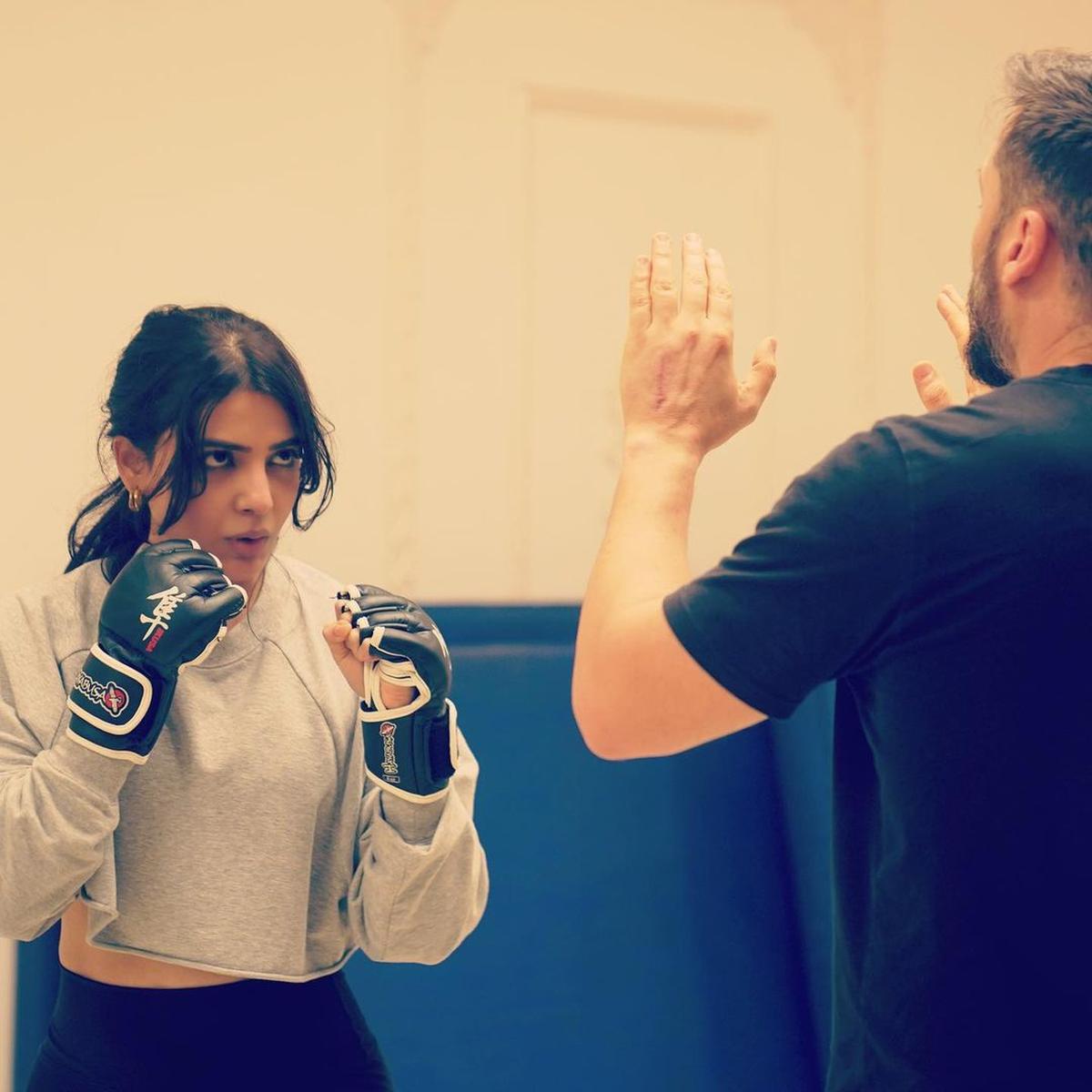
Samantha preps for an action sequence
| Photo Credit:
Instagram
The dances choreographed by Raju Sundaram also have classical influences. Samantha points out that it has been a while since she danced. “I wondered where the heroine in me was and when this shift happened. Now I have bruises all over, thanks to Citadel. I recently did an action sequence that is tougher than what I did as Raji. My make-up artist has given up on me since it is tough to cover up those bruises when I shoot for Kushi.”
Ask Samantha if this is a better space to be than doing the cliched heroine roles and she agrees, “Absolutely. For a petite person like me to do these action sequences is fulfilling. People have accepted me and directors write such stories for me. It is a huge step in the opposite direction compared to what was offered to me earlier.”
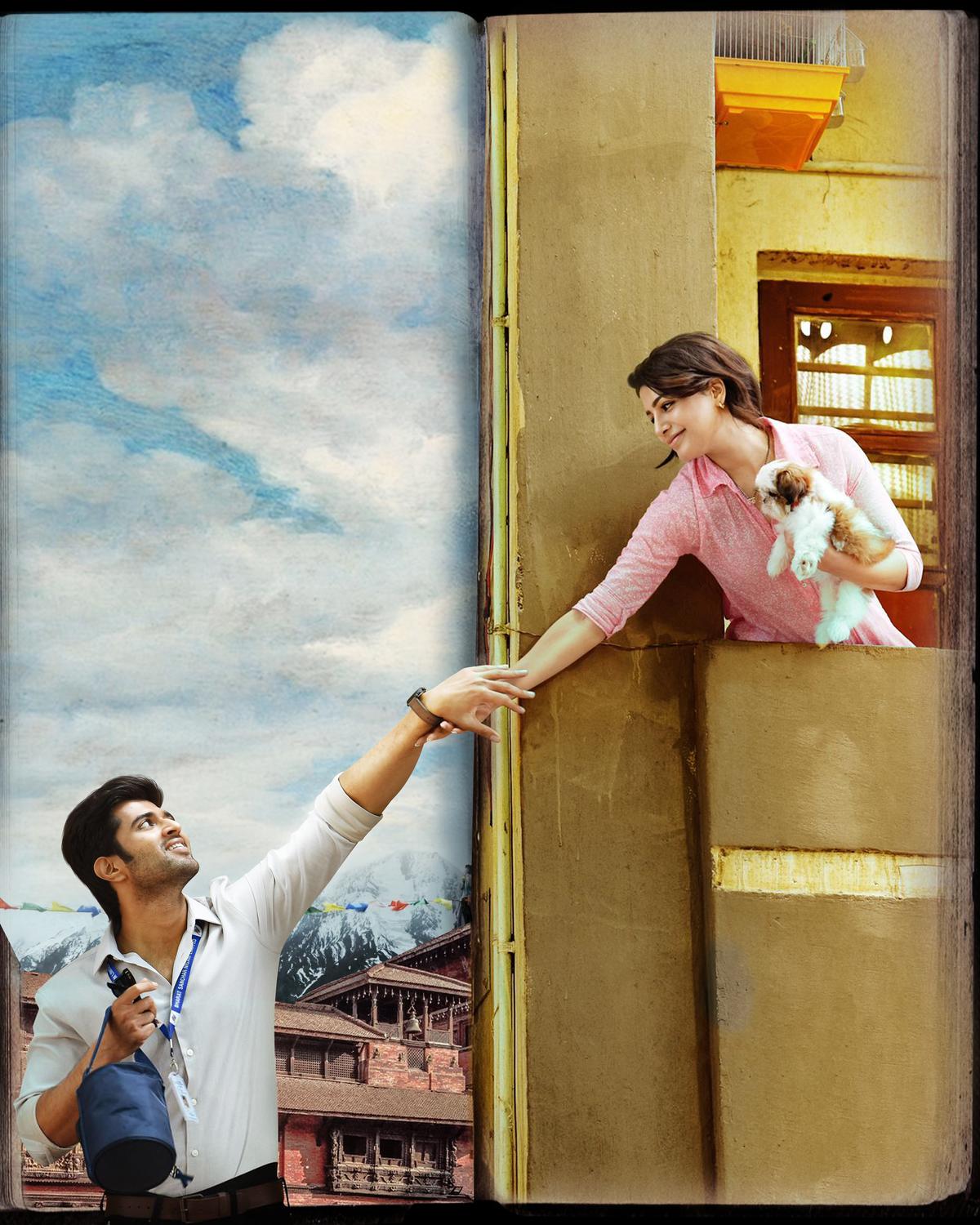
Vijay Deverakonda and Samantha in ‘Kushi’
| Photo Credit:
Special Arrangement
The icing on the cake is also being able to dub for her characters. Having dubbed for Shaakuntalam in Telugu, Tamil and Hindi, Samantha says speaking her lines is the minimum she can do to be a complete actor. “When I watched a few of my earlier films, there was a disconnect since it was not my voice. A lot of internalising happens when you enact a role; there is no way a dubbing artiste will know what I felt while performing a scene. It bothered me that there was not a 100% translation of my performance. I am aware that some critics felt my dubbing has not been on point. But I will do my best and will continue to dub.”


%20new.jpg)
